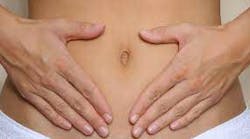Your patients’ poor oral health may be increasing their risk for IBD
Our oral microbiome is at the crux of ongoing research on the link between gastroenterology and oral health. A recent collaborative cohort study by Portuguese researchers has revealed the connection between poor oral health—particularly periodontal disease—and inflammatory bowel disease (IBD).
Partners in crime: IBD and poor oral health
The prevalence of periodontal disease was 55.3% and 69.4% among patients with Crohn's disease and ulcerative colitis. Not only that, but a staggering 88.1% of patients with IBD needed dental treatment and 38.1% required prosthetic rehabilitation.1
After collecting saliva samples from study participants, researchers found that patients with IBD had an elevated abundance of Firmicutes and Bacteroidetes in comparison to healthy controls. These types of bacteria are signs of an imbalance within the gut microbiome.
A separate study from Rush University Medical Center in Chicago, Illinois, analyzed participant stool samples. The research team used both the oral and stool microenvironment of patients with active IBD, inactive IBD, and healthy control samples. Unsurprisingly, participants with active IBD had a less diverse active microbiome and were more likely to contract severe periodontal disease.1
David A. Johnson, MD, notes the possibility of a bidirectional relationship between IBD activity and periodontal diseases; inadequate oral health indelibly plays a role when it comes to these conditions.
The importance of diet
Two additional studies explored dietary factors in IBD risk. Those with a healthy diet and lifestyle intervention had an approximately 13% risk reduction for Crohn's disease over the 20-year duration of follow-ups. While a healthy diet reduces the risk of Crohn's disease, dairy consumption showed no link to Crohn's but instead revealed an inverse relationship with ulcerative colitis. Yogurt had the strongest risk association with this condition.1
Overall, these findings underscore the importance of oral health assessment in IBD management. It's essential to tell our patients that their diet and daily care routines make a difference when it comes to developing IBD. Gastroenterologists should put on their dental practitioner hats and consider dental health and dietary counseling when it comes to IBD treatment.
Resources:
-
Johnson DA. In treating IBD, consider diet and (perhaps surprisingly) dentistry. Medscape. June 5, 2022. https://www.medscape.com/viewarticle/treating-ibd-consider-diet-and-perhaps-surprisingly-2024a1000aew
Sarah Butkovic, MA, is an Associate Editor at Endeavor Business Media, where she works on creating and editing engaging and informative content for today's leading online dentistry publications. She holds a Master's English Language and Literature from Loyola University Chicago and is passionate about producing high-quality content that educates, inspires, and connects with readers.
About the Author

Sarah Butkovic, MA, BA
Sarah Butkovic, MA, BA, is an Associate Editor at Endeavor Business Media, where she works on creating and editing engaging and informative content for today's leading online dentistry publications. She holds a Master's English Language and Literature from Loyola University Chicago and is passionate about producing high-quality content that educates, inspires, and connects with readers.

